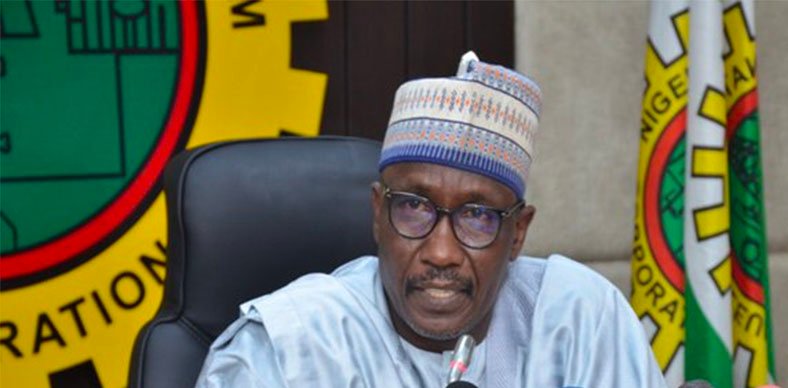
• Queues persist in Abuja, Niger, Nasarawa, supply improves in Lagos
• Marketers to incur double cost on evacuation of adulterated PMS
Amid the uncertainty over the way forward and the crisis trailing the importation of adulterated Premium Motor Spirit, popularly called petrol, into Nigeria, the Federal Government has raised a technical panel to manage the situation and ensure the situation returns to normalcy.
This came as retail marketers said they had yet to get any directive from the Federal Government on how to return the dirty fuel back to the government for cleaning.
The oil retailers’ disclosure came almost a week after the government said it had recalled the hundreds of millions of dirty fuel imported into the country from Europe.
The import of the contaminated fuel had almost grounded business activities across the country as long fuel queues litter major roads.
Speaking on how marketers were at crossroads over the crisis, the National Public Relations Officer, Independent Petroleum Marketers Association of Nigeria, Chief Ukadike Chinedu, stated, “Some marketers still have the contaminated products in their stations and are not selling because of this. The products have not been returned yet due to the lack of clear cut directives on how it should be returned.
“Also, you need documents to enable you to move the tankers from your filling stations back to the place where the product is to be returned because if the police get you without the necessary accompanying documents, they will say you are involved in bunkering.”
However, the Federal Government has drafted a team of technical experts from the Nigerian National Petroleum Corporation Limited, MOMAN, DAPPMAN, and the downstream regulator, among other stakeholders to manage the crisis occasioned by the imported adulterated fuel.
When contacted, the spokesperson for the NNPC, Garba-Deen Muhammad, confirmed that a technical committee had been set up to look into the matter and how the contaminated products would be managed.
He said, “The first thing is to ensure that it is recalled and not in circulation. There are various ways of handling this kind of product; we will leave that to the technical committee that has been set up.
“This committee is drawn from MOMAN, DAPPMAN, downstream regulator, NNPC, from all stakeholders. They all have technical people and know the best way to handle this kind of product.”
On the issues of compensation for people whose vehicles were damaged by the adulterated petrol, an official of the Federal Ministry of Petroleum Resources stated that the minister would constitute an investigative team.
“There is going to be an investigative team and this issue is going to be part of the terms of reference for the team,” the official, who pleaded not to be named due to lack of authorisation, said.
The source added, “So it is only when the team is set up that you can be talking about compensation. It is the investigation that will determine the level of compensation.
“It is going to be part of the terms of reference. But it has not been set up. So it is after that that you can talk about compensation and others. Very soon the team should be constituted and the minister is working on it.
“He’s in dialogue with the President and stakeholders to know the next step”
The presence of contaminated petrol in Nigeria was officially confirmed on Tuesday by the Nigerian Midstream and Downstream Petroleum Regulatory Authority.
The NMDPRS had announced that some quantity of PMS with methanol quantities above Nigeria’s specification was discovered in the supply chain.
It said the contaminated product had been isolated, a development that led to a shortage in supply and triggered widespread scarcity of PMS nationwide.
“To ensure vehicular and equipment safety, the limited quantity of the impacted product has been isolated and withdrawn from the market, including the loaded trucks in transit,” the NMDPRA had said in a statement.
It also noted that the “source supplier has been identified and further commercial and appropriate actions shall be taken by the authority and the NNPC Limited.”
Nigeria does not refine crude oil due to the dormancy of its refineries, hence the NNPC imports the commodity from international refiners. This implies that the source supplier is an overseas firm.
The NMDPRA further stated that the NNPC had intensified efforts at increasing the supply of petrol into the market in order to bridge any unforeseen supply gap.
The National President, Independent Petroleum Marketers Association of Nigeria, Debo Ahmed, had told our correspondent that over 100 million litres of petrol were contaminated.
Asked whether the volume of the contaminated products was much, Ahmed had replied, “Well, I don’t know the exact volume, but what I know is that we lifted from various depots in Lagos. But we don’t know the quantity; they say it is about 100 million litres or so.”
The imports of adulterated petrol had also been condemned by the President, Major General Muhammadu Buhari (retd.), and members of the National Assembly, as the government officials had called for a thorough probe into the matter.
Queues persist in Abuja, Nasarawa, Niger
Meanwhile, queues for Premium Motor Spirit, popularly called petrol, increased in many parts of Abuja and neighbouring Nasarawa and Niger states on Friday, as two more oil firms have denied involvement in the imports of adulterated PMS.
Also, oil marketers are currently lamenting the huge cost being incurred in the process of evacuating the contaminated products. They further revealed that there was no clear cut directive yet on how to return the commodities.
It was observed on Friday that many filling stations in Federal Capital Territory and neighbouring states were not dispensing petrol, as marketers claimed that some of the outlets had contaminated PMS, while others had no product to sell.
The few ones that dispensed the commodity were greeted with large queues of motorists, for instance, the Nipco filling station at the Kubwa end of the Kubwa-Zuba Expressway had hundreds of PMS seekers.
Major Oil filling stations on the airport road had heavy queues. The same scenario played out in front of the two filling stations opposite the Abuja headquarters of the Nigerian National Petroleum Company Limited.
The queues kept growing despite statements by NNPC and the Nigerian Midstream and Downstream Petroleum Regulatory Authority that hundreds of millions of litres of petrol had been imported into the country to replace the adulterated products and keep the country wet.
Fuel supply improves in Lagos
Unlike Abuja and its neighbouring states, the petrol supply has improved in Lagos State, after days of scarcity of the product.
The News Agency of Nigeria reported that retail outlets were on Friday opened for business in Ikeja, Abule-Egba, Iyana-Ipaja and Oshodi areas of the state.
It was also observed that vehicular queues had reduced in some of the stations which were selling petrol between N162.5 and N165 per litre.
The National Operations Controller, Independent Petroleum Marketers Association of Nigeria, Mr Mike Osatuyi, confirmed that some of the stations had received a supply of on-spec products.
“They have received cargo already and they are discharging. So we should be experiencing more improved fuel supply this weekend,” Osatuyi said.
Osatuyi noted that the importation of off-spec petrol into the country could have been averted if those saddled with certain responsibilities had done their jobs properly.
He said going forward, the Nigerian National Petroleum Company Ltd. and its trading partners, as well as other regulatory agencies, should ensure that due process was followed at all times.
Osatuyi said the importation of sub-standard petrol was an embarrassment to the government and to Nigerians and such should never be allowed to reoccur.
We didn’t import adulterated petrol, more firms fire back at NNPC
Their claims came as two more companies that were accused by NNPC as being culpable in the imports of the contaminated petrol denied the claims made by the NNPC on Friday.
On Wednesday, the Group Managing Director, NNPC, Mele Kyari, said investigations by the company revealed the presence of methanol in four PMS cargoes imported by four Direct Sale Direct Purchase suppliers.
Providing the details of the culpable suppliers, Kyari said, “Importer vessel name load port, 1. MRS MT Bow Pioneer LITASCO Terminal, Antwerp-Belgium; 2. Emadeb/Hyde/AY Maikifi/Brittania-U Consortium MT Tom Hilde; 3. Oando MT Elka Apollon; 4. Duke Oil MT Nord Gainer.”
But Kyari’s claims were greeted with rebuttals by the oil firms. Both MRS and Emadeb had earlier in the week countered the NNPC helmsman.
Joining MRS and Emadeb, two more oil firms, Oando and Brittania-U, came out on Friday to deny being involved in the contaminated fuel imports scandal.
In a statement issued by the Company Secretary, Oando Plc, Ayotola Jagun, the oil firm said, “Following media reports listing Oando as one of four importers that supplied methanol-blended PMS into the country, we hereby state that Oando did not import and supply PMS that was adulterated or substandard.
“The PMS supplied by Oando met Nigeria’s import specification. We are committed to working assiduously with the NNPC and the industry to identify the root cause(s) of the subsequent contamination of the PMS supplied.
“We want to assure the public that Oando as a responsible corporate citizen would not partake in the importation, distribution, or marketing of substandard petroleum products.”
Also, Brittania-U Nigeria Limited distanced itself from the imports of adulterated fuel in a public notice issued on Friday.
It said, “The management of Brittania-U Nigeria Limited has exonerated the company from the ongoing controversy over off-spec PMS in the country.”
It added that “the consortium products that arrived and discharged during 4th and 19th January 2022, through daughter vessels, were duly certified as meeting NNPC product specifications.”
However, a senior NNPC official who spoke on condition of anonymity, insisted that though the suppliers were appointed to import fuel on behalf of the NNPC, under a Direct Sale Direct Purchase arrangement, it might be difficult for them to exonerate themselves from taking responsibility for the off-spec PMS.
The NNPC official reasoned that the suppliers were quick to issue statements denying responsibility and culpability for fear of litigations that might arise as a result of the adulterated fuel crisis.
Similarly, the President, Nigerian Union of Journalists, Mr Chris Isiguzo, in a statement on Friday, said that he expected that as responsible corporate organisations, “the importers of the contaminated fuel will take full responsibility and seek restitution for this national mishap.”
He said, “It has become imperative to note that after over four years of uninterrupted availability of premium motor spirit, Nigerians over the past few days have been grappling with buying the products at filling stations across some parts of the country.
“The present challenge the Union understands is as a result of the importation of PMS with higher than normal methanol level. Since the unfortunate development, it is regrettable to observe that there have been some back and forths between the NNPC and some of its designated importers over the ‘bad fuel’.”
Isiguzo also urged that stakeholders should avoid politicising the whole issue rather the NNPC should demand a probe as ordered by the President.
He added, “At the same time, the NUJ believes that with measures already undertaken by the management of the NNPC especially with a presidential inquest on the way, there should be a limit to politicising such a sensitive economic matter.
“Rather, what ought to obtain now is the demand of that the probe panel as ordered by President, Major General Muhammadu Buhari (retd.) is conclusive, while adequate compensation is paid to all verifiable claims of those whose vehicles may have been affected by the high methanol PMS.
Also commenting on the matter, the National Public Relations Officer, IPMAN, Chief Ukadike Chinedu, stated that some of the over 100 million litres contaminated PMS were still in the tanks of some filling stations.
He said, “Over 100 million litres are adulterated and not all have been distributed, which is why we are trying to compile filling stations that received them and those that did not.
“There are also some of them that are on transit and the truck owners don’t even know that they are carrying adulterated products. Some of them have been asked to recall these trucks to the depots.
“And it is expected that the NNPC will receive back the products and these are stringent measures that will last more than one week.”
Marketers spend double on logistics to evacuate contaminated PMS
Asked about the cost required to evacuate the contaminated products, Ukadike stated that the amount spent on logistics in evacuating the adulterated PMS was double the amount used in bringing them to filling stations.
He said, “The cost of evacuating it is double of the amount used in bringing it to the filling station. If you spent N150, 000 to bring the product to your station, it will cost you close to N300, 000 to send it back.
“This is because you will hire the truck to come to your station, you will hire pumping machines, experts, safety personnel and first of all you will isolate the station. The product is, of course, still inflammable.
“A marketer currently has about 100,000 litres still in his tanks underground and as we speak, it will take him close to N700, 000 to evacuate it.”
He added, “We also want the government to come out with clear cut directives and procedures on how contaminated products should be returned.
“Some marketers are still having the contaminated products in their stations and are not selling because of this. The products have not been returned yet due to a lack of clear cut directives on how it should be returned.
“Also, you need documents to enable you to move the tankers from your filling station back to the place where the product is to be returned because if the police get you without the necessary accompanying documents, they will say you are involved in bunkering.”
Copyright PUNCH.
All rights reserved. This material, and other digital content on this website, may not be reproduced, published, broadcast, rewritten or redistributed in whole or in part without prior express written permission from PUNCH.
Contact: [email protected]





